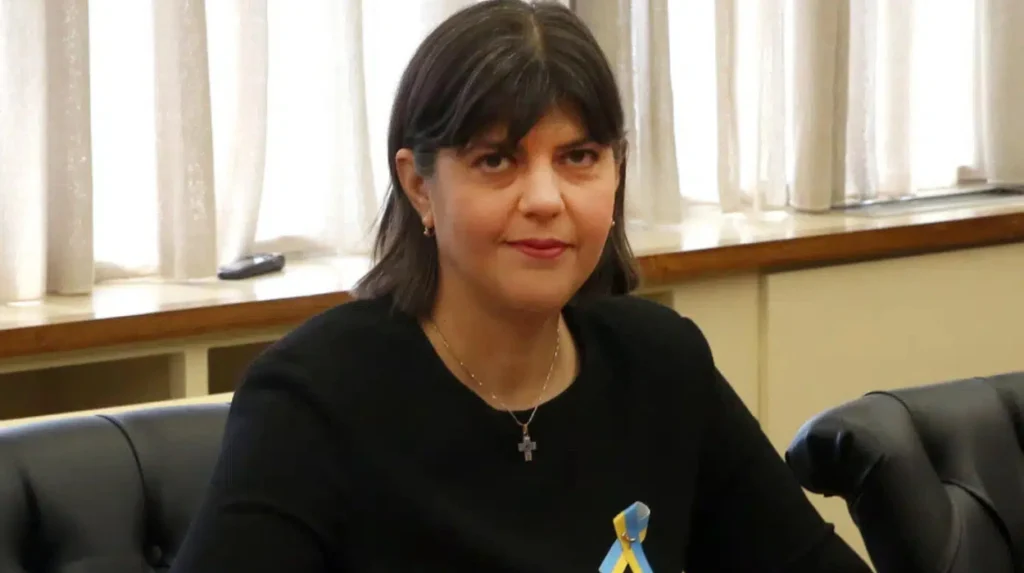European Chief Prosecutor Laura Kovesi embarked on a significant official visit to Greece this week, underscoring the European Union’s intensified commitment to combat corruption within member states. Her trip, marked by high-level meetings with Greece’s top judicial and governmental officials, aims to bolster collaboration between the European Public Prosecutor’s Office (EPPO) and Greek authorities in tackling fraud and corruption, particularly cases affecting the EU budget.
Reinforcing the Fight Against Corruption and Fraud
During her visit, Kovesi emphasized the critical necessity of joint efforts in addressing complex corruption schemes that jeopardize public trust and the financial integrity of the European Union. She stated,
“Our shared mission is to protect EU taxpayers’ money. Corruption threatens not just budgets but the rule of law and citizens’ confidence in institutions.”
This reflects her overarching goal to enhance operational cooperation and information exchange between the EPPO and Greek prosecutors and law enforcement agencies.
Kovesi’s arrival comes at a pivotal moment for Greece, which has faced persistent challenges related to public sector corruption and financial mismanagement over the decades. The European Public Prosecutor’s Office has been incrementally increasing its activities in Greece after its general launch in 2021, and Kovesi sees this visit as a step toward harmonizing investigations and improving procedural efficiency.
Meetings with Greek Leadership and Judicial Authorities
The chief prosecutor held extensive discussions with Greece’s Minister of Justice, as well as senior members of the judiciary, including heads of anti-corruption prosecutors’ offices and financial crime task forces. These meetings focused on accelerating ongoing complex probes into fraudulent practices involving European structural funds and highlighting procedural bottlenecks.
A senior Greek official noted that the dialogue was constructive and underscored the importance of “aligning our national efforts with the European framework to better safeguard funds financed by EU taxpayers.” Greek authorities have reportedly shared insights into investigative dossiers with EPPO representatives, reflecting a growing willingness for transparent cross-border cooperation.
Furthermore, Kovesi met with representatives from Greece’s law enforcement agencies to discuss the deployment of advanced forensic tools and shared training programs designed to improve capacity in digital forensics and complex financial audits. She expressed confidence in enhancing Greece’s technical capabilities through EPPO-supported initiatives, explaining that “modern corruption requires equally modern investigative techniques and resources.”
Addressing Key Challenges in Greek Anti-Corruption Landscape
Despite ongoing efforts, challenges persist in Greece related to lengthy court processes, inefficient case management, and at times, political pressures that hinder judicial independence. Kovesi acknowledged these obstacles but stressed the importance of collective resolve in ensuring that no case of corruption goes unpunished if it falls within EPPO’s remit.
She urged,
“Member states must commit unequivocally to judicial independence and timely justice, or the credibility of our entire anti-corruption framework is at stake.”
This message resonated with Greek legal experts who view judicial reform as a cornerstone of improved anti-corruption outcomes.
Moreover, the visit spotlighted recent high-profile corruption scandals involving public procurement and EU-funded infrastructure projects in Greece. By drawing attention to these cases, Kovesi highlighted the EPPO’s expanding jurisdiction and capacity to investigate complex, multi-jurisdictional cases—especially those implicating officials and entities benefiting from illicit gains.
Aligning Efforts with the European Public Prosecutor’s Office Mandate
The EPPO was established to prosecute crimes against the EU’s financial interests, including fraud, corruption, and serious cross-border VAT fraud, with a particular focus on protecting billions of euros in European funds distributed annually. Kovesi’s office operates independently yet in close collaboration with national judicial authorities.
Her visit underlines efforts to address growing case backlogs and enhance communication channels between the EPPO’s central office and Greek prosecution services. Strengthening these lines of cooperation is seen as essential to imposing effective sanctions and recovering misappropriated funds.
Analysts suggest that Greece’s participation in the EPPO framework can serve as a model for other member states struggling with similar issues, demonstrating that coordinated international action helps close loopholes and accelerates justice delivery.
Broader Implications for EU-Wide Anti-Corruption Policies
Kovesi’s outreach efforts highlight broader EU reforms aimed at boosting the rule of law and ensuring transparent governance across the bloc. The European Commission has increasingly prioritized anti-corruption in its agenda, linking financial aid disbursements to adherence to strict judicial standards.
The chief prosecutor’s statements during this visit echoed this emphasis, reinforcing that member states’ cooperation with institutions like the EPPO is indispensable in the larger fight against organized crime and corruption, which weaken democratic governance and economic stability.
Through Greece, she seeks to demonstrate how targeted collaboration and resource-sharing can elevate national anti-corruption enforcement to a credible European dimension, effectively deterring fraudsters and protecting public interests.
A Strategic Milestone for Greece and the EU
Laura Kovesi’s visit to Greece represents a strategic milestone in the EU’s concerted efforts to combat corruption penetrating the public and financial sectors. By intensifying cooperation, improving investigative tools, and reinforcing judicial independence, both the European Public Prosecutor’s Office and Greece aim to cultivate greater transparency and accountability.
As Kovesi emphasized,
“Corruption is not a local issue; it is a European challenge that requires a united front and unwavering commitment.”
Her visit reinforces the message that safeguarding EU funds depends on proactive, transparent, and collaborative actions at both national and European levels, helping restore citizens’ trust in public institutions.







